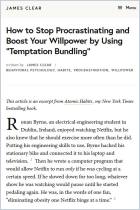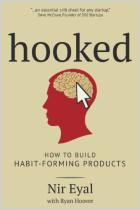To form a new habit, try coupling a desired new behavior with a usual behavior. To change habits, develop your awareness of your daily routines. James Clear promotes taking continuous, small steps toward forming habits that will eventually take the place of undesired ones. Frequent repetition automates behaviors and turns them into habits. Rewards and incentives, such as enjoyable activities, can nurture the effort of instilling good habits. Your individual identity aligns with habitual behavior. Clear recommends refining that behavior continually to achieve lasting change.
Small Steps
Frequent repetition automates behaviors and turns them into habits. Most people undervalue applying little changes to their routines but, over time, a minuscule adjustment can create “atomic habits,” the foundation for extraordinary outcomes. These atomic habits function as part of a methodical system which does a better job of helping you achieve progress than merely setting a goal without outlining a process for attaining it. Atomic habits interconnect like building blocks to provoke remarkable adaptations to your behavior. Achieving long-lasting results requires establishing a path for permanent change.
A person’s actions arise from a belief system based on a set of assumptions which form his or her identity. Normally, individuals try to change their habits by listing “what” they want, thus producing an “outcome-based” goal.
An alternative to this approach centers on “who” the person wants to become by creating “identity-based habits.” For example, people who take pride in their athletic skills will carry out the habits affiliated with maintaining their physical ability ...

























Comment on this summary or Iniciar a Discussão
The quote from the end of the summary, captures it nicely:
“Continuously practiced good habits incorporated in tiny, sustainable steps compounds into powerful conduct. And, developing good habits builds your authentic identity.”